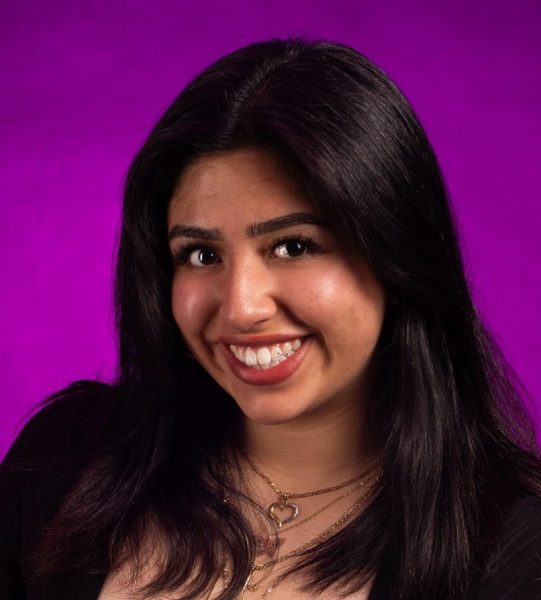
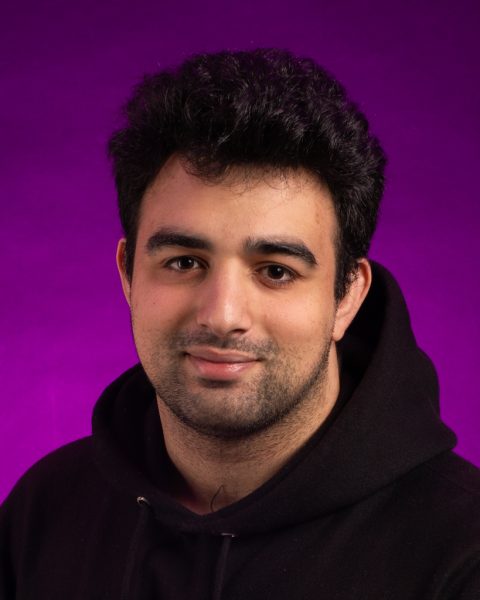
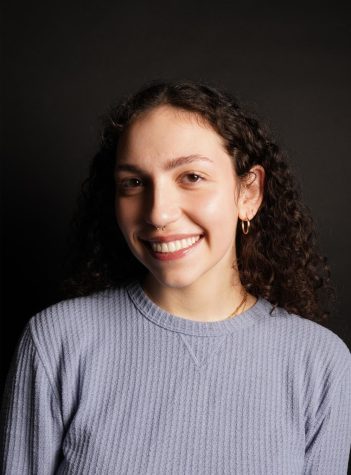
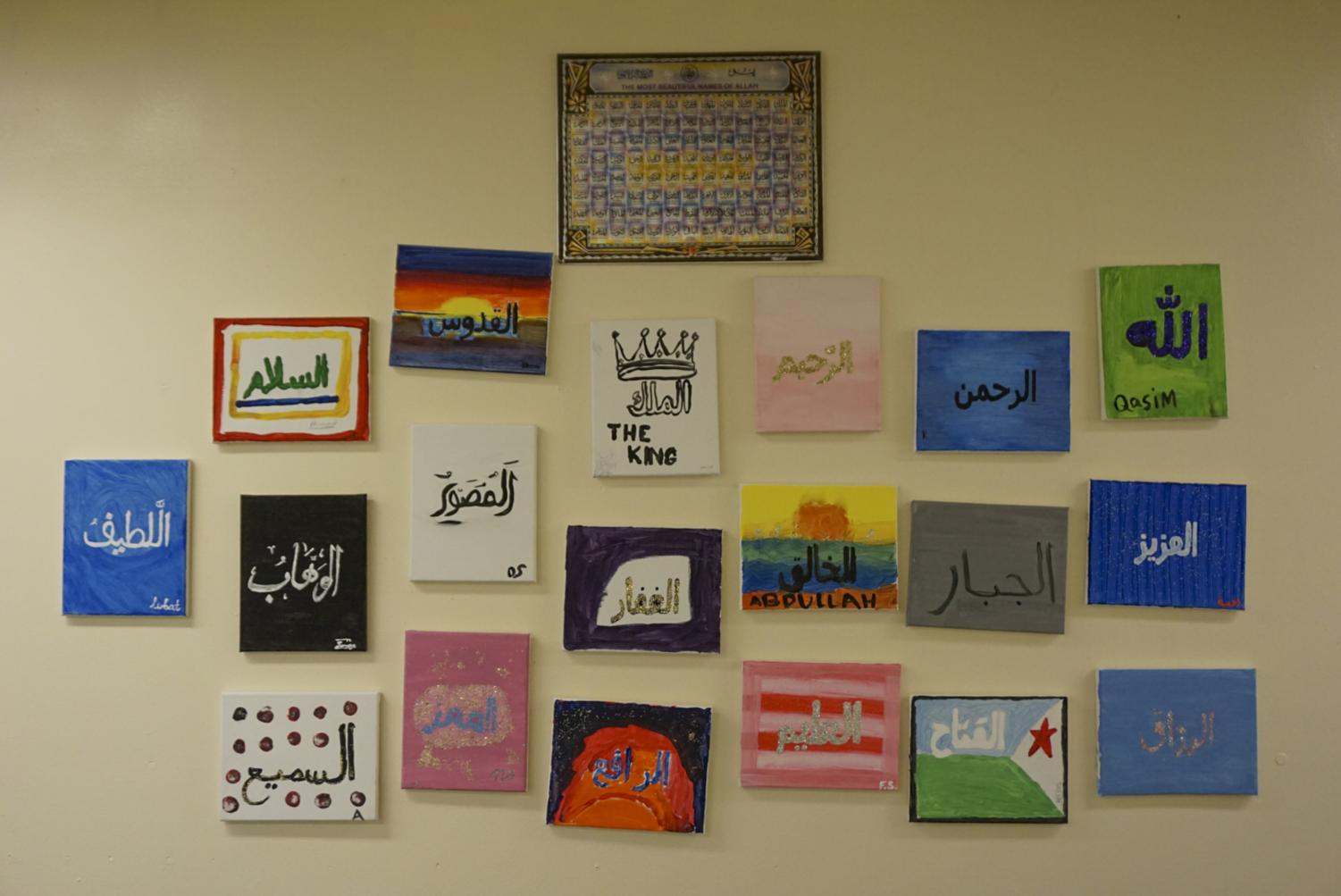

Muslim students speak up about the History of Islam course professor who is under investigation after showing an image of the prophet Muhammad.
Apr 21, 2023
An SF State history professor is currently under investigation for showing an image of the Prophet Muhammad in one of his courses last fall. Physical depictions of Muhammad are prohibited in Islamic culture, seen as idolatry and is considered a sin.
After Professor Maziar Behrooz displayed the image in a History of Islam course, students’ complaints to the university prompted an investigation.
Mr. Behrooz refused to comment while the investigation is ongoing.
Equity Programs and Compliance, a program that works with Title IX, stated the office neither confirms nor denies the existence of a potential misconduct report nor will they comment on how it is being handled.
History Department Chair Laura Lisy-Wagner declined to comment on the investigation, but expressed that they support both academic freedom and students’ rights.
Foundation for Individual Rights in Education, a nonprofit organization that defends the rights of students and faculty on college campuses in the United States, has urged SF State to end the investigation and protect academic freedom.
“In this case, Professor Behrooz, his class was on the history of the Islamic world and he is from Iran. There, he has seen similar images to the one that he showed in class. It’s completely relevant to the class and him deciding to show that shouldn’t be something up for investigation, of course,” said Program Officer for FIRE, Sabrina Conza. “When a student complains about something, the school should review that complaint and then when they see that it would violate the First Amendment rights of a professor to investigate, they have an obligation to not investigate that speech.”
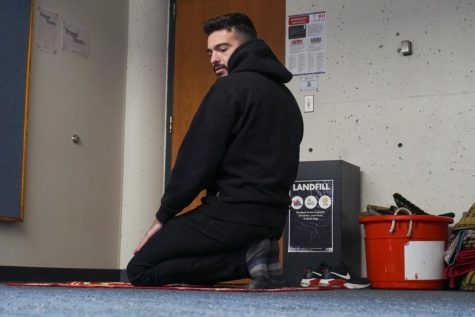
Lutfi Maaz, a junior at SF State, had previously taken the course and experienced the incident firsthand when classes were still over Zoom. After the incident, Maaz dropped the class.
“I took the class for two weeks, within the first week or so he had pictures of the prophet and I was like ‘yeah, I don’t think I should be learning Islam from someone like this,’” Maaz said. “Someone in the class brought up the topic of should we even be bringing up the picture and his reply was like, ‘well, I am and that was it. It is free speech but it’s unethical.”
According to Maaz, Behrooz has been teaching the course with the same material since COVID-19.
Last semester a student came to the Muslim Student Association for advice on how to handle the situation.
“When I heard about the situation as well, and how both the teacher and the student had reacted or responded to the situation, it wasn’t necessarily handled in the right lighting,” said Ruqaiyah Angeles, president of MSA. “I don’t feel like there was a lot of students that actually got angered by this and kind of did not protest, but wanted to reach out to the professor.”
The MSA decided to reach out to Larry Raphael Salomon, a Race & Resistance Studies lecturer, who advised students about the issue.
“I think when it comes to Islam, especially in America, people are very ignorant. For most people, it’s not necessarily a bad thing, they just don’t know and some other people choose to be ignorant and not look into things,” Angeles said. “In Islam, it’s prohibited for us to show or depict the Prophet just because we don’t believe in worshiping or praising an image, idol or person.”
Angeles recognizes the struggles Muslims on campus go through and feel like they are unseen.
“Me and the other members of the community, as well as in leadership, we’ve tried to get the school as well as campuswide staff members to see Muslims on campus for all the things that we go through,” Angeles said.
The argument of freedom of speech in the classroom has been a debated topic within all levels of education.
“What professors have in the classroom is academic freedom, which is a close corollary to free speech is a protection in the First Amendment according to numerous courts, including the 11th circuit, which is a court that has jurisdiction over California,” Conza said. “It means that faculty members have the right to determine what to teach, how to teach and that they can’t be prevented from teaching certain things because administrators don’t want them to.”
Administrators can establish a course’s curriculum but once a professor is assigned a course they have academic freedom to determine how they want to teach, according to Conza.
“In this case, the class is literally on the history of the Islamic world,” Conza said. “That history involves the Prophet Muhammad. He is the prophet for Islam and showing an image of him to some Muslims is offensive, but many Muslims don’t find that offensive and they actually consider it a positive thing.”
Angeles believes that the definition of what free speech is when it involves religion should be respected.
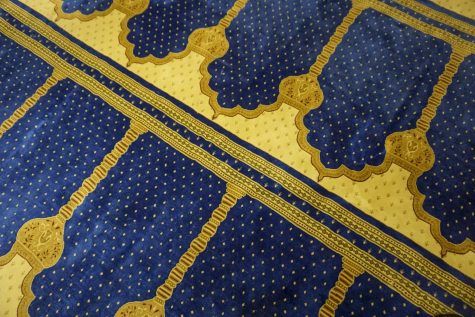
“I think there’s this idea of freedom of speech and things like that are thrown around. It’s used to justify certain things and not others. So, again, this happened, right, and they kind of brushed under the rug and said, ‘we can’t help you’,” Angeles said. “ Well, at the same time when it comes to religion, it’s always ‘well Christians get every room in the campus, they want to pull a Bible study and for us when we asked for a prayer room, they couldn’t provide us with the necessary things to feel safe in that space.”
Conza released a statement to SF State stating, “as a public institution, SFSU must respect faculty members’ right to teach potentially controversial material, even if it makes a student uncomfortable. This core First Amendment principle is what allows faculty to teach a broad swath of pedagogically relevant material, including about slavery, the Holocaust, and politics.”
According to Conza, FIRE has been in contact with SF State administration. Administration responded to their first letter and FIRE sent out another on Monday, April 10. President Lynn Mahoney sent out a statement that same day.
“Last week, the Office of Equity Programs & Compliance initiated an investigation into an incident that occurred in an Islamic Studies class,” Mahoney said. “Our systemwide antidiscrimination policies and processes are governed by federal and state laws, and they are complicated and legalistic. In this case, our implementation of these policies prompted faculty concerns about academic freedom.”
Angeles believes that the administration has stayed quiet out of fear of being sued or canceled, and believes they have thrown these issues under the rug.
“My message to the staff members here is there’s a lot more Muslims than you think that have been going here and still go here, and if you don’t start putting the students at the center of what you do when you make decisions for this campus, then enrollment will continue to drop,” Angeles said.



Anon • Apr 27, 2023 at 9:00 pm
♥️